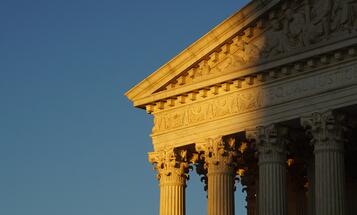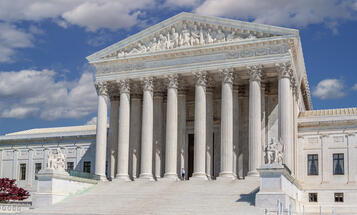
Million-Dollar Megaphones Raise the Decibel Level on the 2012 Elections
Outside spending organizations have fast become a favored tool for wealthy individuals and interests to drown out the voices of average citizens.
Congratulations to Michael Phelps, Gabby Douglass, and our other Olympic standouts. It’s great when Americans win gold at the Olympics. But, it’s not so great when gold wins elections back at home.
Justice Louis D. Brandeis famously said, "We must make our choice. We may have democracy, or we may have wealth concentrated in the hands of a few, but we can't have both." He might have also said, “We can have democracy write the rules for capitalism, or we can let private wealth control public power—we have to choose.”
Unfortunately, we’ve not yet made the right choice.
In a new report, called Million-Dollar Megaphones: Super PACs and Unlimited Spending in the 2012 Elections, Demos and the U.S. PIRG Education Fund detail how outside spending organizations have fast become a favored tool for wealthy individuals and interests to drown out the voices of average citizens.
Some disturbing numbers tell the story:
- 321,000: That’s how many average American families would have to give the same percentage of their total wealth that Sheldon and Miriam Adelson have given to match the Adelson’s $36.3 million in contributions to Super PACs.
- More than 50%: That’s how much ad spending on the presidential race has come from “dark money” groups that don’t disclose their donors.
- Less than 1%: That’s how much of their spending the Top 5 dark money groups are disclosing to the FEC.
- 0.0035%: That’s the portion of the American population responsible for 94.1% of Super PAC fundraising from individuals—just 1082 people, who could all fit into a high school gym.
- 47: The number of people giving at least $1 million to Super PACs, responsible for more than half of their fundraising from individuals. Those folks could fit in the school bus on the way to the gym.
The bottom line here is that large corporations the super-rich are using million-dollar megaphones to drown out our voices in a sea of sometimes secret cash.
Unlimited outside spending shapes a democracy in which the size of a citizen’s wallet determines the strength of her voice—where those who are successful, or lucky, in the economic sphere are able to use their wealth to amplify their political voices.
This unlimited spending is even worse when much of it is secret. This denies voters the information they need to make informed decisions, insulates political actors from accountability, and prevents citizens from seeing the full picture of just how distorted our democracy has become—exactly how few people are responsible for how many decibels in the public debate over elections.
The wealthy few dominating our political process has two major consequences. First, it skews policy outcomes. We know that businesses are usually seeking their own interests, not the public interest. And, a growing body of research shows that wealthy individuals do not live, work, or think like the rest of us—and as a result have significantly different views and priorities.
Next, the outsized influence of the wealthy undermines the legitimacy of our democracy. We hold different values dear in the political and economic spheres. We cannot maintain a true democracy in which we all come to the political table as equals and a capitalist economy with some inevitable disparities in wealth unless we have basic protections that prevent translating private wealth into public power.
Put simply, democracy must write the rules for capitalism, not the other way around. And common sense rules governing the role of money in politics are our best chance to preserve a fair democracy and a fair economy.


